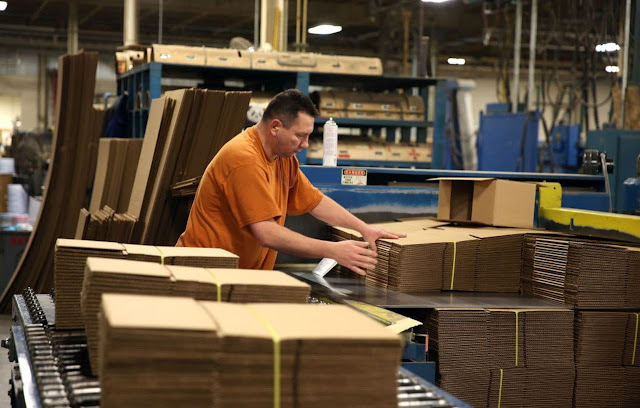ALTERNATIVE HAMBURGER BOX WITHOUT PLASTIC
In addition to kebab and pizza,
the hamburger is one of the most popular fast foods in the USA. In large
fast-food chains, juicy burgers are sold every minute. Most catering
establishments use disposable plastic boxes so that the fat does not leak out
during takeaway. They are practical, impervious to grease, and stable.
The packaging is usually thrown
away after just a few minutes. However, it is precisely the plastic packaging
that causes considerable damage to our ecosystem and destroys it in the long
term. And these can easily be replaced by environmentally friendly
alternatives.
Plastic waste pollution from hamburger boxes
The majority of fast food chains,
restaurants, delivery services, and supermarkets offer burgers and the like in
plastic takeaway boxes. Thus, plastic packaging is an indispensable part of
everyday life, especially when it comes to quick takeaway meals. Therefore, the
following figure is not surprising: around 30% of global plastic consumption
can be traced back to packaging alone.
Plastic waste: plastic and the sea
Plastic: The material that caused
so much enthusiasm in the beginning has now become a global problem.
Once glorified as
multifunctional, plastic was used in all areas of life. Today plastic seems to
have taken on a life of its own in terms of consumption and disposal. Tons of
garbage ends up in our ocean every year. 75% of this is made of plastic. The
waste there remains for several hundred years because plastic does not simply come
off.
About 90% of the litter in the
ocean sinks to the bottom of the ocean floor, destroying the habitat of many
animals. In addition, as the plastic gradually breaks down, toxic ingredients
are released, released into the environment, and entered our ecosystem. This
makes garbage a problem not only for animals and nature but also for people.
Disposable packaging: health hazards
Plastic is now part of our
ecosystem. Micro plastics enter our environment in an uncontrolled manner -
through tire abrasion, cosmetics, detergents, and cleaning agents - and have
long since made it into our food chain. Micro plastics have been detected in
living things, even in human stools. We even breathe in micro plastics.
Plastic contains many chemical
substances that are dangerous to health:
Bisphenol A (BPA): The hormonally
active chemical is used to manufacture polycarbonate, among other things. It is
the most widely used synthetic chemical in the world. At the same time, this
means that you can hardly escape it.
Relevance for disposable plastic
packaging: The chemical is mainly used in the manufacture of custom packaging USA packaging
materials. Even in small amounts, hormones can cause a lot of damage and affect
the hormonal system of humans and animals. Impotence, infertility and fertility
problems, diabetes, and obesity can all result.
Plasticizers: They make plastic
elastic in the first place. Here too: from car tires to dental fillings,
plasticizers are used in every industry. Under certain circumstances, they can
also make you sterile, cause cancer and change the genetic make-up, such as
impairing the function of the thyroid or pancreas.
Environmental protection: EU plastic ban
The EU is reacting to the global
problem of plastic waste with a plastic bag to contain the severe dangers. The uncontrolled
release of plastic into the environment should finally be stopped. The ban
primarily applies to single-use plastic products:
Packaging made from
Oxo-degradable materials
·
Plate
·
cutlery
·
plastic bags
·
Straws
·
Sticks of pleasure balloons
·
cotton swab
The focus here is on SM custom packaging
made from plastics that quickly disintegrate into small pieces after use. In
addition, further regulations regarding marking and labeling have been
established. In this way, the consumer can see directly which symbols are used
to hide harmful substances and avoid them.
Alternative: environmentally
friendly hamburger boxes
Alternative disposable packaging
is the latest trend. This is mainly due to the rethinking in society:
environmental pollution has become a global problem that affects politics and
the economy. The focus is primarily on the personal responsibility of each
member of this society.
Environmentally friendly
hamburger boxes made from bagasse
Disposable bagasse packaging is
currently a popular environmentally friendly plastic alternative. Bagasse is
the name for residual sugar cane fibers produced as a waste product during
sugar production. The ecologically friendly further processing (circular
economy) turns a waste product into a valuable, bio-based raw material. For the
production of one-way packaging, neither a forest has to be cleared nor
plantations built.
The material is robust,
resilient, and can declare war on plastic packaging. If all takeaway products
such as hamburgers were only delivered to customers in bagasse boxes, this
would make a helpful and immense contribution to avoiding plastic products.
Other
alternatives: cardboard, bamboo, and bioplastics (PLA)
In addition to bagasse, numerous
other raw materials are used to manufacture alternative disposable products
such as plates, bowls, and boxes. These are, for example, renewable raw
materials such as bamboo and cardboard.
A lot is happening in science at
the moment, especially in the field of bioplastics. Many single-use products
made from custom boxes wholesale
are currently available. However, sustainability is controversial. The way is
paved, but numerous modifications and social adjustments still have to take
place. Composting plants, for example, are currently not yet able to sensibly
recycle bioplastics. Because of this, we have an overview of all the advantages
and disadvantages of the plastic alternatives for hamburger boxes:




Comments
Post a Comment